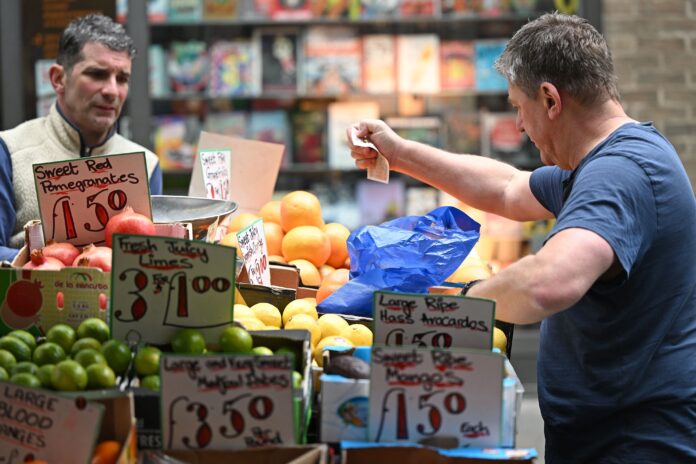Inflation has hit 9.1% in a new 40-year high
The rate of price increases is up just 0.1 per cent from April’s figure but is at its highest point since 1982
An ONS spokesman said that he doesn’t want to forecast when prices will come down.
But says the “slowing economy” will take “pressure off prices” over medium term.
Anna Leach, CBI Deputy Chief Economist, said:
“Inflation has picked up again, and we expect it to stay elevated over the year ahead, particularly as global price pressures remain strong. The result will be much pain for those businesses most exposed to higher costs, and a historic squeeze on households’ incomes.
“The void left by falling household spending must be filled by government action to shore up both near and long-term economic growth. Committing to a permanent successor to the super-deduction, as well as supporting green infrastructure and technologies that help cut energy bills in homes and businesses, will both boost economic confidence and reduce exposure to volatile global energy prices.”
Rebecca McDonald, Chief Economist at the Joseph Rowntree Foundation said:
“Inflation continues to hit highs not seen since the early 1980s, heaping more pressure on millions of families who were already struggling. While the very high annual rate is still heavily fuelled by energy costs, it will be worrying for families already trying to manage on low incomes that the biggest contributor to the increase on last month’s rate was food prices.
“The support package announced last month shows the Chancellor is finally grasping the scale of the crisis. The continuing rise in food prices means the decision in April not to uprate benefits in line with inflation has left low-income households, who spend more of their budget on these items, facing a difficult 3 months until they receive their July payment.
“Instead of lurching from crisis response to crisis response, the government needs to get on the front foot and address the fundamental inadequacy of our social security system. As a first step to ensuring that benefits actually support people in hard times, the government must immediately stop deducting debt repayments from benefits at unaffordable rates.”
Helen Dickinson, Chief Executive of the British Retail Consortium, said:
“Households and businesses in the UK are continuing to feel the squeeze from rising prices, as higher energy prices, a tight labour market and increasing transport and commodity costs filter through to consumers. Fierce competition for market share means that retailers will continue try to absorb as much of these costs as possible and look for cost-savings elsewhere.”
“Retailers are working hard to do what they can to protect their customers from price rises, including by expanding value ranges, keeping the cost of essentials down and providing discounts for certain vulnerable groups. With inflation only set to rise, the BRC will continue to work with retailers to find ways to mitigate future price rises.”







